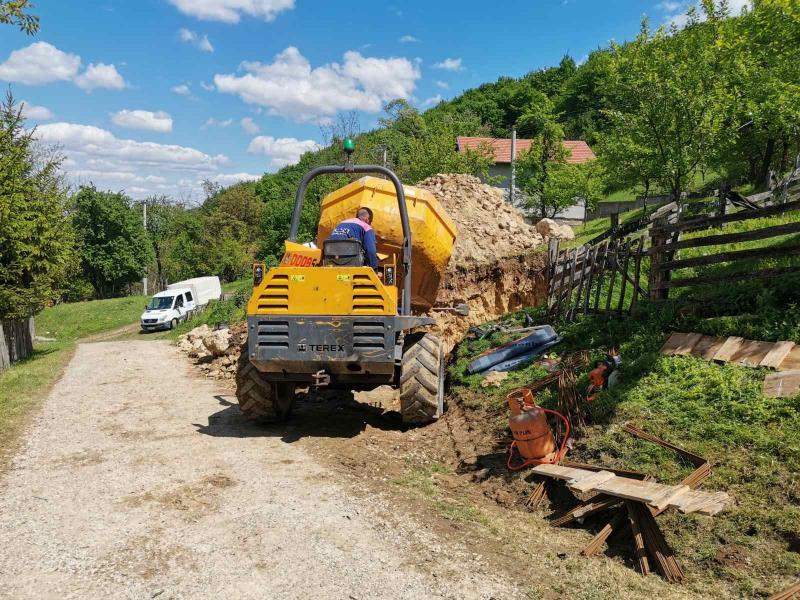The Bosnia and Herzegovina water supply gets a boost from EU financing that means farmers will no longer have to bring water to their fields in horse carts
The people of Jajce and Zvornik, two municipalities in Bosnia and Herzegovina, have struggled for years with unreliable, inefficient water supply and wastewater disposal. The lack of basic water infrastructure has been particularly challenging for agricultural households in small villages without proper roads that nonetheless had to undertake the laborious task of fetching water with tractors and horse carts.
Now, things have changed, with a €2.1 million grant through the Western Balkans Investment Framework that complements the European Investment Bank’s financing for the project. The funds will facilitate the construction of wastewater and water systems to bring drinking water and sanitation services to 93 000 people.
"The water supply was a very big issue in our village, and in the past we had to transport the water ourselves to our households and farms two or three times a week,” said Neđo Jović, a farmer in Lokanj, a village in the Zvornik municipality. “We mostly make our living from cattle breeding, and this project is of great significance for us. To get access to clean water 24/7 is like winning the lottery for me. "
Addressing the essentials of Bosnia and Herzegovina water supply
The Western Balkans Investment Framework grant, which comes from bilateral donors, will also help build the water supply system on the right bank of the River Vrbas, reduce water losses in the Resnik water supply system in the Jajce municipality, construct a water supply system in Lokanj-Pilica and build a wastewater treatment plant for Tabanci in the Zvornik municipality.
“The European Investment Bank generally implements projects which are the result of the needs of ordinary people,” says Vjekoslav Bevanda, Bosnia and Herzegovina’s Minister of Finance and Treasury. “These funds will help to significantly improve the quality of their lives, and this is the most important result of these projects.”
The investments will also help decrease migration from rural areas to cities and encourage young people to continue their family farming traditions.

Access to water for 50 municipalities
The water and sanitation programmes were launched in 2008 to assist 50 small and medium-sized municipalities in Bosnia and Herzegovina develop sustainable water and sanitation services. The total value of these projects is over €215 million, including €110 million in European Investment Bank loans and €14.4 million in EU grants, which are channelled through the EU’s Western Balkans Investment Framework. These projects were identified as flagships in the Economic and Investment Plan for the Western Balkans because of their impact on the environment and public health.
“We remain committed to reducing water pollution and improving drinking water,” said EU Ambassador to Bosnia and Herzegovina Johann Sattler. “In December 2020, the European Union allocated an additional €6 million of Instrument for Pre-Accession Assistance funds to support the implementation of water and sanitation programmes throughout the country.”
Better prepared for emergencies with Bosnia and Herzegovina water supply
To date, the European Investment Bank has invested €240 million for water and sanitation infrastructure and flood protection systems in Bosnia and Herzegovina.
“One of the European Investment Bank’s priorities is to improve access to drinking water and sanitation services for people in the Western Balkans and help the region move towards more sustainable environmental solutions,” says Lilyana Pavlova, the EIB Vice-President responsible for Bosnia and Herzegovina. “This investment will increase preparedness for emergencies and natural disasters by providing safer sanitation conditions and reducing water pollution.”
